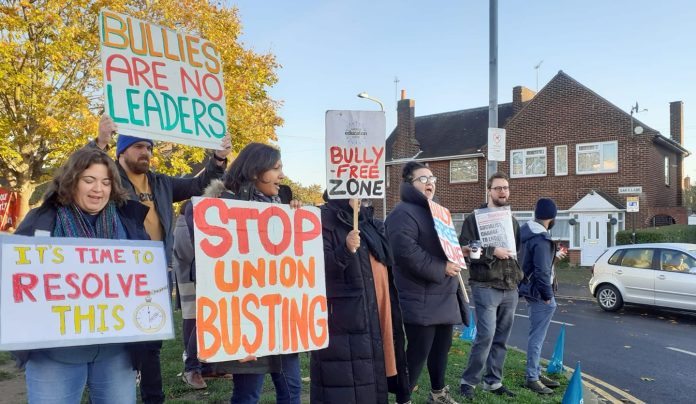Emily, a teacher and Socialist Party member in London, explains how underfunded education is affecting her and the school she works in.
It’s impacting the way that schools are staffed. Schools could be forced to operate under a gig economy, temporary and part-time positions filled by independent contractors and freelancers, rather than full-time permanent employees, because of the lack of secure roles – causing uncertainty for workers and pupils.
Agency staff face job instability, limited sick pay, and unpaid bank holidays. The less consistency there is in schools, the more inconsistent the learning environment.
Enrolment numbers for London primary schools are declining thanks to a number of factors, including the cost-of-living crisis. Fear is rising for the future of these schools, due to the majority of funding being allocated per pupil.
A lower intake could mean children’s reduced access to adult support. Primary schools at Key Stage 1 operate with one teacher for 30 children, while there is no limit to pupil numbers in Key Stage 2. If teachers are lucky, they may have a teaching assistant for the equivalent of two or three days per week.
Higher class sizes increase pressure on teachers. Social issues, like bullying, are harder to manage when there is a lower adult-to-pupil ratio.
Since returning to school post-pandemic, pupils are experiencing greater predisposition to mental health issues. The rates of probable mental disorder in children and young people increased by 6.7% between 2017 and 2021.
Staffing and support
To support pupils facing challenges, schools need to be staffed consistently with enough professionals to meet children’s needs. These professionals must have adequate access to training and support. This will not happen if budgets are cut.
Cuts will mean fewer teachers, support staff, learning support assistants, cleaners, kitchen staff, caretakers, administrative assistants, specialists for pupils with special educational needs and disabilities (Send), and staffing cuts for breakfast and after-school clubs.
Closing and merging schools will primarily hit working-class families. Parents and carers may have to travel further, impacting their jobs and family.
Families’ outgoings may increase to pay for children’s before- and after-school care. New uniforms are a cost that many families will not be able to afford.
With the remnants of the pandemic already causing delays in children’s social and emotional development, further changes will continue to set them back.
I believe teaching is about so much more than the transference of knowledge. It is about providing and maintaining a safe space for children, where they can explore socially, build emotional resilience, have access to books and resources, build friendships, and develop interests. Unfortunately in many cases, it is a place for children to be warm and fed.
Well-funded schools are needed now more than ever. That’s why it’s so important that the National Education Union (NEU) strike is fighting for a real pay rise and full funding. Local councils must back the strikes, and campaign with the unions for the funding that schools need.







